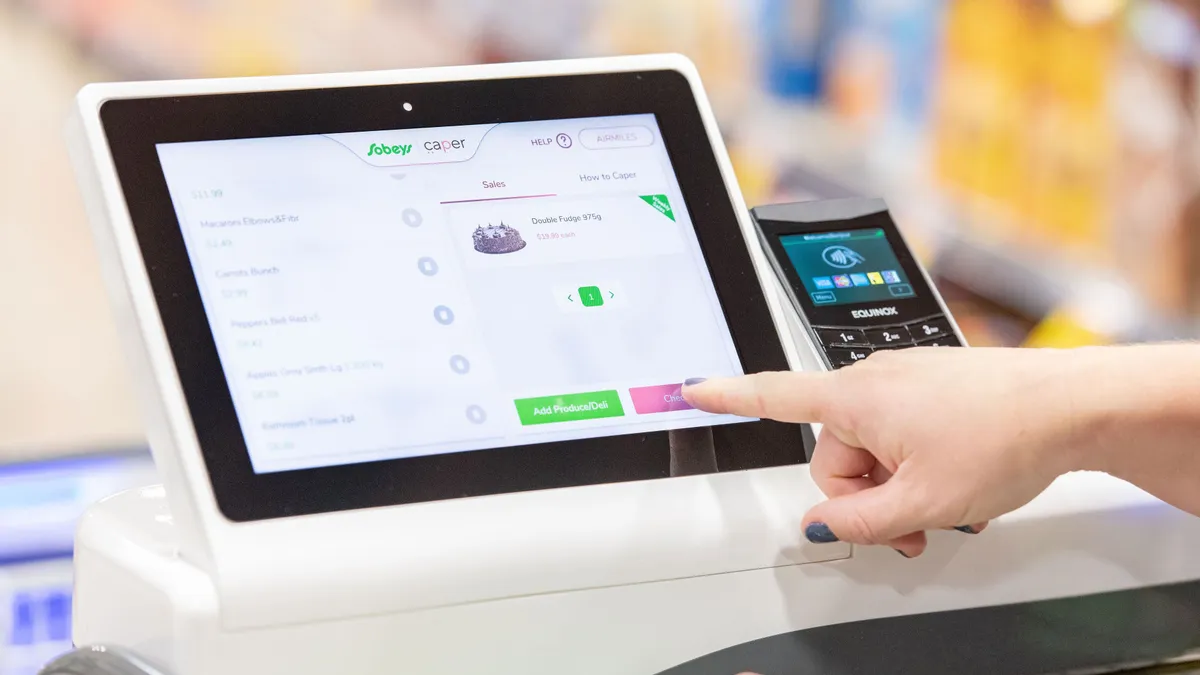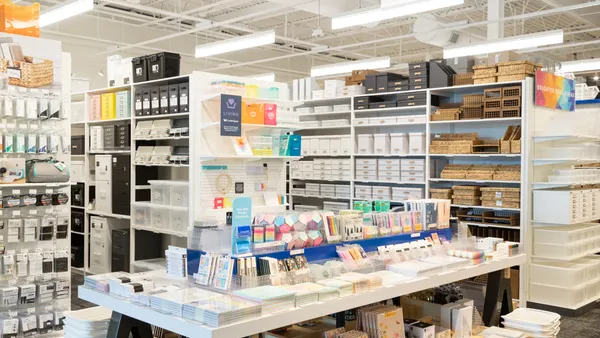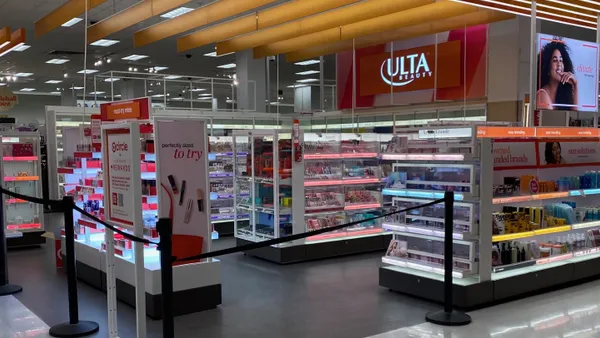Dive Brief:
- Instacart is acquiring smart cart and checkout technology company Caper AI for $350 million in cash and stock, the e-commerce provider announced on Tuesday.
- Instacart will integrate Caper's technology into its app and e-commerce sites of its retail partners over time to create unique online and in-store experiences. The acquisition will streamline shopping for consumers, while making it easier for Instacart workers to fulfill orders, the company said.
- This marks Instacart's second announced acquisition this year as the company looks to bolster its technology offerings to its retail partners.
Dive Insight:
Instacart is gearing up for the future of shopping beyond the pandemic and its e-commerce boom by investing in solutions that marry offline and online shopping.
"As we look ahead, we're focused on creating even more ways for retailers to develop unified commerce offerings that help address consumer needs across both online and in-store shopping,” Instacart CEO Fidji Simo said in the announcement.
Ultimately, Instacart sees Caper as a way to create comprehensive commerce. For example, with Caper, Instacart customers will be able to build shopping lists that appear on their online account and also on the smart cart.
Founded in 2017 and based in New York City, Caper offers a plug-and-play checkout solution that it says is significantly less expensive to implement than store wide systems like Amazon Go. The Caper Cart uses AI-powered cameras and weight sensors to recognize items placed within the cart without having to scan or weigh them and offers interactive in-store shopping with touch-enabled screens that can offer basket-based recommendations, nearby deals and other features. Customers can pay with the cart, bypassing checkout lines.
The Caper Counter, which debuted last fall, uses cameras and a weight sensor to auto-detect items for contact-free self-checkout.
Caper's website says it plans to add smart location sensors to let people search for and get guided to certain items in the store. While Instacart already has mapping technology for its workers, Caper's technology will shave off time by letting them bypass checkout lines, Instacart said.
Caper's smart carts were the first carts in the U.S. to get approval by the federal government's National Type Evaluation Program, certifying they can accurately sell products that are priced according to weight and measures, like produce and bulk items, Instacart noted in the announcement.
Instacart said Caper's technology will make it faster and easier for customers and its workers to make purchases at grocery and convenience stores of all sizes. For its retail partners, Instacart said Caper's technology increases average basket sizes relative to traditional shopping carts. Instacart said it will work toward efficiencies of scale with Caper to reduce hardware production costs, making the carts and counters more affordable.
Caper also possesses a highly sought-after component: data. Carts track shoppers' purchases and offer a way for retailers to offer personalized deals while they're shopping, according to Caper's website. Caper's plan to track the carts will also help companies understand a shoppers' journey through the store and push location-based product deals to them, according to the firm.
The acquisition also adds Caper's employees and their hardware expertise to Instacart's workforce, growing the company's product and technology knowledge.
For Caper, getting bought by Instacart brings it more exposure to retailers and customers and opportunities to scale its business. The company counts among its clients Sobeys, the second largest food retailer in Canada; Schnuck Markets; Foodcellar Market, an organic grocer with two locations on Long Island; Wakefern; and Auchan in France and Spain. Last fall, Caper started piloting a branded smart cart solution with Kroger called KroGO.
Instacart's foray into the smart cart space comes at a time when Amazon's Dash Cart and Just Walk Out technology — among other in-store shopping innovations like a palm-reading payment tool — have disrupted the grocery industry. Competition is growing in the smart cart and cashierless payments space, with companies like Shopic and WalkOut selling technology that retrofits carts.
The acquisition is the second one this year for Instacart and its fifth one in total. Less than three weeks ago, Instacart said it is buying catering software firm FoodStorm. Like FoodStorm, Caper will further beef up Instacart's investments in its suite of enterprise technology services.














